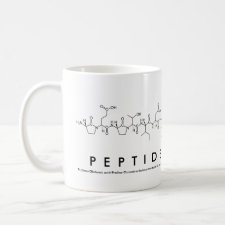
Authors: Cristallini C, Bellotti E, Spezia F, Rosellini E, Cascone MG, Barbani N
Article Title: A new strategy to reduce amyloid deposition using peptide-imprinted membranes.
Publication date: 2016
Journal: Journal of Applied Biomaterials & Funtional Materials
Volume: 14
Issue: (2)
Page numbers: e129-e136.
DOI: 10.5301/jabfm.5000288
Abstract: Background The accumulation of amyloid beta protein in the brain causes the cognitive impairment observed in neurodegenerative pathologies such as Alzheimer's disease. The present study aimed to test the hypothesis that a rapid removal of amyloid beta protein peptides from the blood by an extracorporeal purification system could represent an alternative solution for the treatment of patients suffering from this neurodegenerative disease. Methods In this regard, we investigated the specific recognition properties of a molecularly imprinted membrane based on poly(ethylene-co-vinyl alcohol) toward the amyloid beta protein fragment 25-35 (AbP), the more neurotoxic domain of amyloid beta protein. A chemical modification of the copolymer backbone using succinic anhydride was also performed to favor the formation of carboxylic groups and thus improve imprinting performance. Results The physico-chemical, morphological, mechanical and functional characterisations gave interesting results confirming the ability of imprinted membranes to in vitro rebind AbP. Conclusions This work represents a proof of concept regarding the development of a biocompatible polymer membrane capable of selectively removing amyloid beta peptide from the blood and consequently from the cerebrospinal fluid
Template and target information: protein, peptide, amyloid beta protein fragment 25-35, AbP



Join the Society for Molecular Imprinting

New items RSS feed
Sign-up for e-mail updates:
Choose between receiving an occasional newsletter or more frequent e-mail alerts.
Click here to go to the sign-up page.
Is your name elemental or peptidic? Enter your name and find out by clicking either of the buttons below!
Other products you may like:
 MIPdatabase
MIPdatabase









